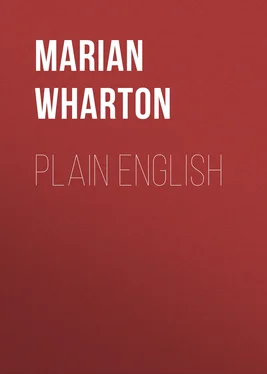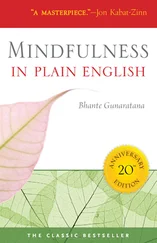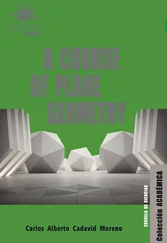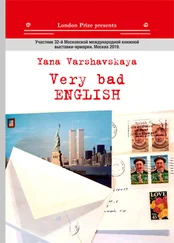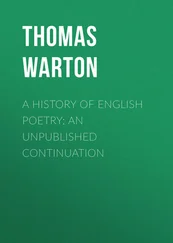Marian Wharton - Plain English
Здесь есть возможность читать онлайн «Marian Wharton - Plain English» — ознакомительный отрывок электронной книги совершенно бесплатно, а после прочтения отрывка купить полную версию. В некоторых случаях можно слушать аудио, скачать через торрент в формате fb2 и присутствует краткое содержание. Жанр: foreign_edu, foreign_language, на английском языке. Описание произведения, (предисловие) а так же отзывы посетителей доступны на портале библиотеки ЛибКат.
- Название:Plain English
- Автор:
- Жанр:
- Год:неизвестен
- ISBN:нет данных
- Рейтинг книги:5 / 5. Голосов: 1
-
Избранное:Добавить в избранное
- Отзывы:
-
Ваша оценка:
- 100
- 1
- 2
- 3
- 4
- 5
Plain English: краткое содержание, описание и аннотация
Предлагаем к чтению аннотацию, описание, краткое содержание или предисловие (зависит от того, что написал сам автор книги «Plain English»). Если вы не нашли необходимую информацию о книге — напишите в комментариях, мы постараемся отыскать её.
Plain English — читать онлайн ознакомительный отрывок
Ниже представлен текст книги, разбитый по страницам. Система сохранения места последней прочитанной страницы, позволяет с удобством читать онлайн бесплатно книгу «Plain English», без необходимости каждый раз заново искать на чём Вы остановились. Поставьте закладку, и сможете в любой момент перейти на страницу, на которой закончили чтение.
Интервал:
Закладка:
Whenever there is a word used in these lessons which you do not thoroughly understand, look it up at once in your dictionary and master it then and there. Make a list in your note book of the words you look up and at the end of the week go over them again and see if you have them clearly in mind. Watch also the pronunciation of the words. Do not try to do everything all at once, nor should you be discouraged if your progress seems slow. We approach the goal one step at a time and each step takes us nearer and nearer. Just keep steadily at it, Comrade.
Yours for Education, THE PEOPLE'S COLLEGE.KINDS OF SENTENCES
19.We have found that we use sentences to express our thoughts. But we also find that we use these sentences in different ways for different purposes. Can you notice any difference in the following sentences?
Two classes have always existed.
To which class do you belong?
Join your class in the struggle.
When I say, Two classes have always existed , I am making a simple assertion, stating what I know or believe to be true.
When I say, To which class do you belong? I am asking a question.
When I say, Join your class in the struggle , I am giving a command or making a request.
20. These three kinds of sentences are called assertive, interrogative and imperative.
An assertive sentence states a fact or an opinion.
An interrogative sentence asks a question.
An imperative sentence gives a command, makes a request or expresses a wish.
21.Any of these three kinds of sentences may be exclamatory; that is, it may express surprise, excitement, impatience, or some other emotion. For example:
Hurrah! Freedom is coming!
This is an assertion expressed as an exclamation.
Oh! Why should war continue?
Here we have a question in the form of an exclamation.
Come! Keep your courage up.
In this, we have a command, an imperative sentence, expressed in the form of an exclamation.
An exclamatory sentence expresses surprise, excitement or some other emotion.
In these three forms of sentences, the assertive, the interrogative and the imperative, together with the exclamatory, we are able to express every thought and feeling which demands expression, either for practical or artistic purposes.
The sentence is the basis of spoken and written language and as we trace its development we trace the history of the evolution of man and the growth of his power of expression, as he has developed his powers of mind.
22. Every sentence must begin with a capital letter.
Every assertive and imperative sentence should end with a period.
Every interrogative sentence should end with a question mark.
The word in an exclamatory sentence which expresses strong emotion is followed by an exclamation point. The sentence itself if in interrogative form should be followed by a question mark; if in the assertive or the imperative form it may be followed either by an exclamation point or a period.
Exercise 1
Mark the assertive sentences among the following with an a in the blank space. Mark the interrogative sentences with a q for question; the imperative sentences with a c for command; and the exclamatory with an e for exclamation.
1. ...... Books are the true levelers.
2. ...... Put not your trust in princes.
3. ...... To err is human; to forgive divine.
4. ...... What are the rights of a child?
5. ...... Seize common occasions and make them great.
6. ...... Not until all are free, is any free.
7. ...... Freemen! Shall not we demand our own?
8. ...... Is a world of happiness but a Utopian dream?
9. ...... He who will not work, shall not eat.
10. ...... Strike at the polls for freedom!
11. ...... Do the majority want social justice?
12. ...... A friend is the hope of the heart.
13. ...... How beautiful is the vision of peace!
14. ...... Acquire the thinking habit.
15. ...... Is it glorious to die for our country?
16. ...... Lo! Women are waking and claiming their own!
17. ...... Claim your right to the best.
18. ...... What is the highest good?
19. ...... Workers of the world, unite!
20. ...... To remain ignorant is to remain a slave.
WORDS—THEIR USES
23.We have learned from our study that we use sentences to express our thoughts. These sentences are made up of words; therefore we call words parts of speech . Words are only fractions or parts of speech, and it is by combining them into sentences that we are able to express our thoughts.
There are many thousands of words in the English language. It would be impossible for us to study each word separately. But these words, like people, are divided into classes, so we can study each class of words. These thousands of words are divided into classes much as people are, or rather as people ought to be; for words are divided into classes according to the work which they do. In the Industrial Commonwealth there will be no upper or lower class, but men will be divided into groups according to the work which they do. There will be various industrial groups, groups of agricultural workers, groups of clerical workers, etc. So words are divided into classes according to the work which they do in helping us to express our ideas.
24. Words are divided into kinds or classes according to their use in sentences.
There are eight of these classes of words, called parts of speech.
THE NAMES OF THINGS
25.What a word does determines what part of speech it is. When primitive man, long ago, first began to use words, in all probability the first words which he invented were those used to name familiar objects about him. He invented a word for man , boy , tree , animal , etc. Gradually, all the things he met in his daily life received a name. About one half of the words in our language are of this class, the names of things.
Every word which is used as a name of something is called a noun . This word noun is derived from the Latin word which means name , so it is quite the same thing as saying name . Notice the following sentences:
Boys run.
Fish swim.
Horses neigh.
Soldiers march.
Flags wave.
Flowers fade.
Girls study.
Winds blow.
Men work.
All of the words used like boys , girls , fish , horses , soldiers , flag , winds , flowers and men , are the names of objects, therefore all of these words are nouns . The subject of a sentence is always a noun or a word used as a noun. However, we may use in a sentence many nouns besides the noun which is used as the subject, the noun about which the statement is made. We will study the use of these nouns later in our lessons.
The famous palace of the kings of the Moors, at Granada, in Spain, was called the Alhambra. We have six nouns in this sentence, palace , kings , Moors , Granada , Spain and Alhambra , but the noun palace is the noun which is the subject—the noun which is the name of that about which something is said. Palace is the subject; and was called is the predicate in this sentence.
26. A noun is a word used as the name of something.
Читать дальшеИнтервал:
Закладка:
Похожие книги на «Plain English»
Представляем Вашему вниманию похожие книги на «Plain English» списком для выбора. Мы отобрали схожую по названию и смыслу литературу в надежде предоставить читателям больше вариантов отыскать новые, интересные, ещё непрочитанные произведения.
Обсуждение, отзывы о книге «Plain English» и просто собственные мнения читателей. Оставьте ваши комментарии, напишите, что Вы думаете о произведении, его смысле или главных героях. Укажите что конкретно понравилось, а что нет, и почему Вы так считаете.
